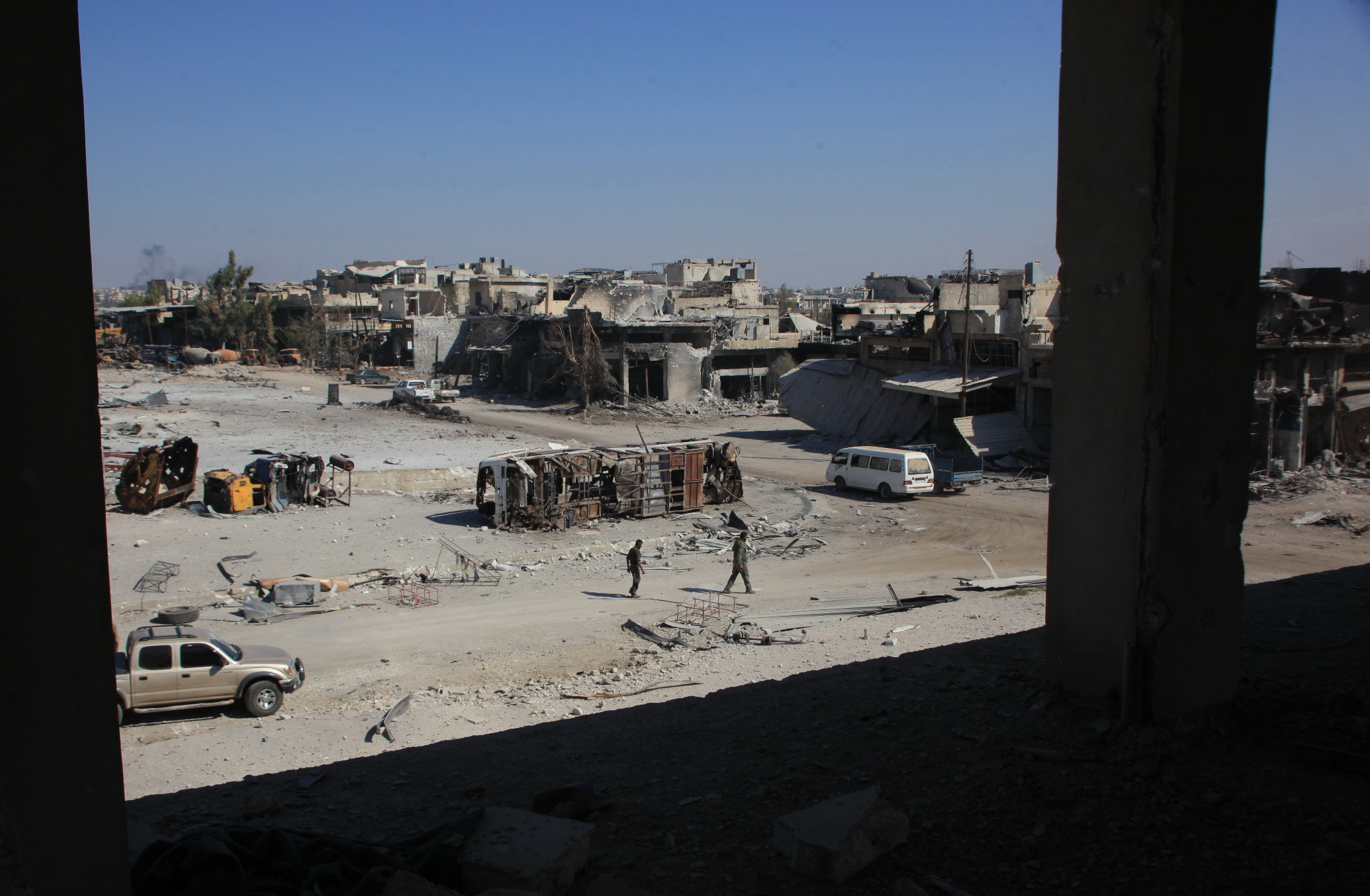Syria's Absence From US Campaign Trail No Surprise to Experts
"What is Aleppo," one candidate asked this week.
— -- When a question about the crisis in Aleppo, Syria, stumped Libertarian Party candidate Gary Johnson, his gaffe underscored just how little that country’s ongoing civil war is being discussed in the U.S. presidential campaign.
"This is the most we've talked about the tragedy in Aleppo in a year, so by saying, ‘What is Aleppo,' we actually now have a better conversation about the tragedy going on in Aleppo,” ABC News political analyst Matthew Dowd said this week on “Good Morning America.”
“So you've got to give him credit for raising the conversation in that way. I don’t think he meant it … but I'm looking on the bright side.”
Johnson, a businessman and former New Mexico governor, has since said he simply drew a blank when asked this week on “Morning Joe” about Aleppo.
But there’s no mistaking Syria as a regular topic of discussion in this election.

Elizabeth Saunders, a political science professor at George Washington University who is a visiting fellow at the Council on Foreign Relations, said it is common for political candidates not to focus on the details of their plans, or lack thereof.
"For the most part, when Syria is discussed, the few times I’ve seen it discussed, it’s usually in more of a general critique of President Obama,” she told ABC News.
"People are concerned about terrorism and I think some people make a connection between ISIS and Syria and terrorism and, so, that's kind of the most common way it has come up.”
Saunders also said it is common for voters to overlook foreign policy in presidential campaigns, and although candidates have not delved into policy in a big way, it has come up “more than I thought,” tangentially.
"The issues become proxy fights. They become the background against which we have these debates about who is more competent,” she said of the foreign policy discussions that do happen.
The result is a lack of public understanding of what polices the candidates would implement as president, says Bill Galston, a senior fellow at the Brookings Institution.
"My impression is that … this has not been a wildly substantive election, especially when it comes to foreign policy,” Galston told ABC News.
He said that while “Donald Trump doesn’t strike me as someone who concerns himself with the details of foreign policy,” Galston also believes there has not been extensive focus on Clinton’s plans, either.
"Has the campaign to date given the American people a clear choice .... based on the option that each of the candidates would be most likely to implement if president? No,” he said.
Trump's campaign website lists only seven areas of his policy positions, and does not mention Syria at all.
Even though Clinton has 37 policy positions listed on her campaign site, Syria comes up once on a page dedicated to "National Security."
And in keeping with Saunders’ assessment, the Syria mention on Clinton's page comes up in a section dedicated to having "a real plan for confronting terrorists."
That then links out to a page that has her plan for "[taking] out ISIS's Stronghold in Iraq and Syria," where she states that she plans to pursue "a diplomatic strategy aimed at resolving Syria’s civil war and Iraq’s sectarian conflict between Sunnis and Shias—both of which have contributed to the rise of ISIS."
Saunders said campaigns and voter behavior have effectively simplified foreign policy discussion as a result of habit.
"This is what we do,” she said. “We have shortcuts to kind of figure out who is the best on foreign policy rather than discussing policy in detail.”




